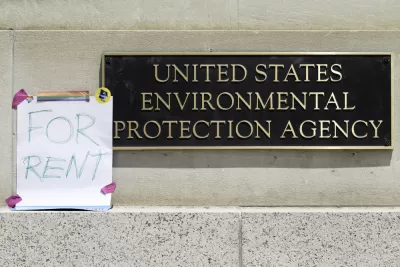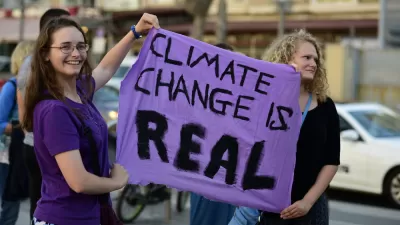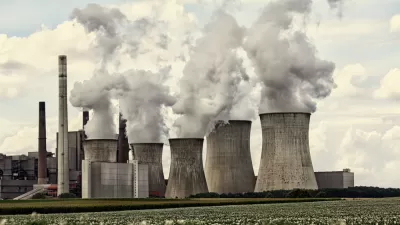An even set in motion years ago by the Trump administration came to fruition on November 4 while most Americans were paying attention to the election.

Brady Dennis, Juliet Eilperin, and Dino Grandoni report that the United States officially "became the first and only nation to withdraw from the Paris climate accord on Wednesday, even as the outcome of the presidential race remained unknown."
With the result of the presidential election still undetermined, the direction of the United States as a global partner in the effort to reduce carbon emissions before the worst projections for climate change and sea-level rise are impossible to avoid hangs in the balance. A Trump victory would mean years of stagnation on climate action in the United States.
Here's what the climate status quo looks like in the United States, according to the article:
The United States could miss its own Paris accord commitment to lower carbon emissions 26 percent to 28 percent below 2005 levels by 2025. According to an analysis by the Rhodium Group, the country is on track to cut its emissions between 20 and 27 percent, depending on how quickly the economy recovers from the pandemic. But it would need to cut emissions by 43 percent over the next decade to be on track to reach net zero emissions by 2050 — a goal that the European Union, Japan, South Korea and other nations have set in a push to slow the world’s warming.
The two candidates for the presidency would "undoubtedly lead the country in opposite directions on climate policy.
"But even as the electoral map appeared to tilt in Biden’s favor Wednesday, signs pointed toward the GOP retaining control of the Senate," according to the article. "That outcome would dim the prospects that a Biden administration could shepherd a comprehensive climate bill through Congress."
FULL STORY: As U.S. leaves Paris accord, climate policy hangs on election outcome

Study: Maui’s Plan to Convert Vacation Rentals to Long-Term Housing Could Cause Nearly $1 Billion Economic Loss
The plan would reduce visitor accommodation by 25% resulting in 1,900 jobs lost.

Alabama: Trump Terminates Settlements for Black Communities Harmed By Raw Sewage
Trump deemed the landmark civil rights agreement “illegal DEI and environmental justice policy.”

Why Should We Subsidize Public Transportation?
Many public transit agencies face financial stress due to rising costs, declining fare revenue, and declining subsidies. Transit advocates must provide a strong business case for increasing public transit funding.

Paris Bike Boom Leads to Steep Drop in Air Pollution
The French city’s air quality has improved dramatically in the past 20 years, coinciding with a growth in cycling.

Why Housing Costs More to Build in California Than in Texas
Hard costs like labor and materials combined with ‘soft’ costs such as permitting make building in the San Francisco Bay Area almost three times as costly as in Texas cities.

San Diego County Sees a Rise in Urban Coyotes
San Diego County experiences a rise in urban coyotes, as sightings become prevalent throughout its urban neighbourhoods and surrounding areas.
Urban Design for Planners 1: Software Tools
This six-course series explores essential urban design concepts using open source software and equips planners with the tools they need to participate fully in the urban design process.
Planning for Universal Design
Learn the tools for implementing Universal Design in planning regulations.
Smith Gee Studio
Alamo Area Metropolitan Planning Organization
City of Santa Clarita
Institute for Housing and Urban Development Studies (IHS)
City of Grandview
Harvard GSD Executive Education
Toledo-Lucas County Plan Commissions
Salt Lake City
NYU Wagner Graduate School of Public Service





























